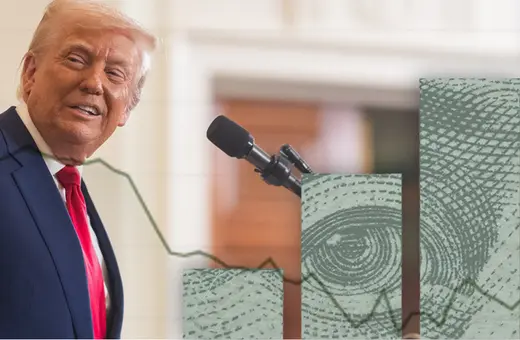Neoliberalism is often used as a slur by critics. Indeed, the blame for just about every major political crisis we live within is placed at the feet of neoliberalism. But, is neoliberalism really to blame? And what exactly are we blaming? In this recent IAI Live interview, Jason Furman, Obama's chair of the Council of Economic Advisors, argues that it was Biden's break with neoliberalism into unpopular, expensive, industrial policy such as the Inflation Reduction Act that cost him the election. With Trump deploying a similar 'spend now, fix later' approach to government, Jason argues that both parties' break with neoliberalism could sow the seeds for a US version of a Liz Truss moment.
In a recent IAI Live opening interview, the New York Times’ Eshe Nelson interviewed Harvard Professor and former Chair of the Council of Economic Advisers under President Obama, Jason Furman about the state of the US economy, why Biden may have lost, how Trump’s economics are playing out and ultimately whether we have an alternative to neoliberalism.
If it was any part of Trump’s economics that won him the election, it was the broad notion that he would change things up. To his voters, the greatest crime Kamala Harris could perpetrate would be more of the same. Indeed, Biden won his election on a platform of increased spending and industrial policy, which, as you’ll see, Jason blames in part for the inflation crisis and Biden’s ultimate defeat. If Biden’s break with neoliberalism led to Trump's election, and as Jason argues, Trump’s policies won’t make this much better, then we’re left in a quandary. What do you do when dominant economics is unelectable, but it’s the only way we’ve got? At least, according to Jason….
Eshe Nelson: On industrial policy, we did see a lot of other countries also kind of take up this mantle, as well as the U.S. It became very popular very quickly. It felt like lots of things got brought under the umbrella of national security, and to have governments choosing the industries that they wanted to support. Where do you think is the right balance there? For example, semiconductors as an industry, I've heard arguments on both sides in terms of it being a national security risk voices versus not. And within that, how do we pick the things that we think are strategically important and go for them versus what we've had for kind of the last couple of decades?
Jason Furman: So microchips are a good example. And, you know, first of all, how you think about it matters. And so the way you should think about it is that your industrial policy is a minus for jobs, and it's a minus for the economy. Why? Because you're diverting resources from their highest and best uses and instead sending them to something less important because the government's telling them to do that.






















Join the conversation